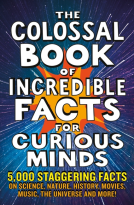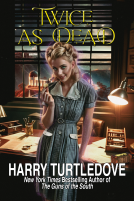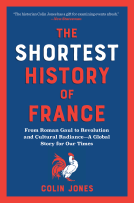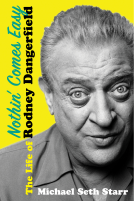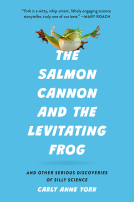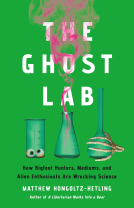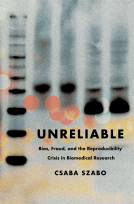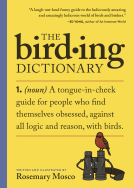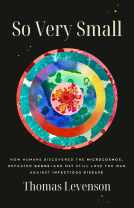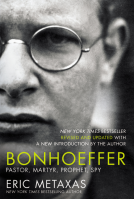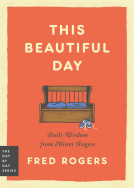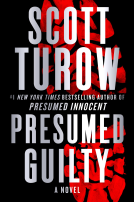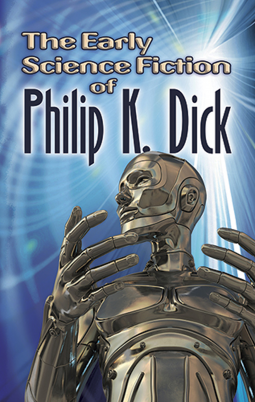
The Early Science Fiction of Philip K. Dick
by Philip K. Dick
This title was previously available on NetGalley and is now archived.
Send NetGalley books directly to your Kindle or Kindle app
1
To read on a Kindle or Kindle app, please add kindle@netgalley.com as an approved email address to receive files in your Amazon account. Click here for step-by-step instructions.
2
Also find your Kindle email address within your Amazon account, and enter it here.
Pub Date Sep 19 2013 | Archive Date Jul 30 2014
Description
Available Editions
| EDITION | Paperback |
| ISBN | 9780486497334 |
| PRICE | $9.95 (USD) |
Featured Reviews
 zeb k, Reviewer
zeb k, Reviewer
Dick was both original and prolific. The stories in this collection are from his first three years as a published writer (1952-1954). They already show his attention to detail, his wry sense of humor and his ability to turn a story around in the last two paragraphs. All these stories were published in the “Pulps” at the end of the “Golden Age”. There are fourteen stories in all and of course some are better than others, some are very short and two would qualify as novelettes.
There is one problem with discussing these stories and that is if you do a complete summary, you have to give away the surprise ending which would ruin the surprise. A synopsis of the story will seem bland and not really cover the story, but I’m not going to put in any spoilers. Needless to say for most fans of Dick this is fine addition to any collection of his works.
Second Variety and The Defenders both have the same premise, earth has been devastated in a nuclear war between the Soviets and the US. In both of them robots have been designed to do the majority of the fighting. How the robots reach to their primary mission is what sets these two stories apart from each other.
Earth has been fighting a war against an alien species. As an off-shoot to some experiments, a ‘tinkerer’ from just before WW1 is brought forward to this future. In The Variable Man all actions are taken based on a machine that can predict success or failure. But the man from the past is a variable that doesn’t compute.
These stories all show Dick’s promise and were a pleasure to read.
Zeb Kantrowitz zworstblog.blogspot.com
5 stars A must-read for genre fans The introduction states that the compilation is of P.K. Dick's best earliest works, dating from 1952-1954. I can't really judge because these are the first of his works that I've read. But I believe it. I now understand why Dick is such an icon in the science fiction world. Since the stories are from the early 50's, they reflect the early Cold War era, including the Soviet Union. Nonetheless the stories are timeless and this collection is a must read.
 Ricki W, Reviewer
Ricki W, Reviewer
This is a great collection of the early works Philip K. Dick, patron saint of American sci-fi. Dick's short stories stand the test of time and are just as interesting and enjoyable in today's modern age of technology as I imagine they were when first written. If you call yourself a fan of science fiction and you're not reading Philip K. Dick, you're doing it wrong.
 melvin u, Reviewer
melvin u, Reviewer
Philip K. Dick (1928 to 1982, born in Chicago) was an extremely prolific writer of science fiction with 44 novels and 121 published short stories. His influence on Sci-Fi world wide is huge. I think his most famous work is Do Androids Dream of Electric Sheep. Living in relative poverty, Science Fiction publishers did not pay very much, he sadly did not live to profit from the eleven Hollywood movies made from his works including my candidate for greatest movie vision of the future, Blade Runner. I was very kindly given an anthology of his early short stories and I decided to read his very first published story, "Beyond Lies the Wub", first seen in Planet Stories in July 1952. I think by looking at these covers we can gauge the target audience for the stories in Planet Stories. (actually I just liked them a lot so I put them in the post.)
As "Beyond Lies the Wub" opens a crew of explorers is getting ready for the long Journey back to earth. One of the crew members brings aboard a 400 pound pig like animal he bought for fifty cents. It turns out the Wub has powers of telepathy and can seemingly speak. He first voices himself when he hears the captain suggesting they should cook and eat him. He and the captain end up speaking of Ancient Greek myths. The Wub tells the captain he is not actually speaking but is inside his mind. He has learned English through telepathy and knows all the captain knows. The story takes an intriguing twist when the Wub is in fact served as dinner at the captain' stable.
I enjoyed this story. This is my first read in the author. I may read more of his short stories. Please share your experiences Sci-Fi with us.
 Metaphorosis R, Reviewer
Metaphorosis R, Reviewer
reviews.metaphorosis.com
3.5 stars
A set of Philip K. Dick's early stories.
My exposure to Dick's work has been limited - The Penultimate Truth, which I didn't care much for when I was young (and haven't reread), and A Scanner Darkly, which I heartily disliked quite recently. But I'm nothing if not optimistic, so I thought I'd try again with this collection. I'm glad I did.
Most of these stories are quite good. The bulk of the narratives is competent, but not outstanding - there's nothing really special in how he handles character here. The premises (often involving war) are interesting, but not truly innovative. What is unusual is the strength of the endings. Perhaps I'm sensitive to this from just finishing a Tad Williams collection, where the endings were almost uniformly weak. But Dick here shows a real knack for strong, satisfying conclusions, even in this very early work. This is what makes the stories worth reading.
Beyond Lies the Wub - how alien livestock feels about its role. A gimmick story, but decently done.
The Skull - a convict is offered freedom for one more misdeed. A stock setup, and one that Dick acknowledges. Even though the conclusion is visible from the early stages of the story, Dick manages to imbue it with a certain amount of interest.
The Gun - interstellar explorers find a mostly desolate planet. This was the first story that made me sit up and say "Hey, maybe there is something to this Dick guy after all.
The Crystal Crypt - Terrans take a desperate step in a looming battle with Mars. Another gimmick story. Interesting, but not very strong.
Second Variety - in global war, one side is winning thanks to its robots. Again, the ending is visible a long way off, but Dick holds our interest, and makes the ending work despite the predictability.
The Variable Man - as a decisive moment approaches in a pending war with aliens, a wild card is introduced. Not very credible, and again quite predictable, but engaging despite that, and with another nice ending.
The Eyes Have It - a small joke about metaphors. Amusing.
Mr. Spaceship - to win a war, humans introduce a spaceship controlled by a human brain. One of the weakest in the set. Highly predictable, implausible, and a rare case where Dick does nothing to improve the story as it winds down.
Piper in the Woods - staff of a key asteroid develop unlikely symptoms. Another weak and predictable gimmick story. It's moderately interesting, but doesn't lead to much.
Tony and the Beetles - a shift in the tides of war causes young Tony to reassess the human position. Dick makes an effort to show Tony waking up to another view of human domination of another race, but there's remarkably little in the story that's not obvious from the first few paragraphs.
Beyond the Door - the underground population suspects their robot soldiers aren't telling them the whole truth. Unlike many of the other stories here, this one is weakest at its end, which is almost entirely implausible. An interesting idea, well started, but Dick drops the ball in the resolution. My feeling with several of these stories was that Dick succeeded with them despite himself. That is, that as a new writer, he relied heavily on cliches and stock situations, but that a little innovation and a genuine delicacy with endings save them from being trite. That same skill applied to newer ideas could be formidable, and I'll be trying more of his work.
This edition provides an unedifying and unnecessary introduction. Mostly, it provides a summary of each story, which is the last thing I want to see before actually reading the stories. I felt the same about the two sentence setup that introduces each one, because they give away more of the premise than necessary. Otherwise, however, this is a fairly good selection, and a good introduction to Dick's work.
NB: Received free copy from Net Galley.
 Librarian 76404
Librarian 76404
A great collection of Philip K. Dick's works. Many iconic stories included. Imitated by many, Mr. Dick's writing style is superlative and gripping as always.
 Reviewer 124971
Reviewer 124971
By grouping the stories together by time period rather than theme, this collection at times feels a bit disjointed tonally. However, the change of pace between the stories can also be refreshing, and this book is a great one to read one story at a time from. Being from the period it is, the Cold War influences are heavy and throughout at least half of the stories, which at times is interesting and at times clearly dates it. However, there are some solid stories here, and many of the ideas transcend the Cold War backdrop. I enjoyed "The Second Variety" quite a bit. And as with many Dick stories, you could see how they would easily translate to a movie or Twilight Zone episode. If you're a huge fan of Dick, or interested in Cold War (or war in general) sci fi, I think this one would be worth a read.
Judged in the context of early 1950s science fiction, these are unremarkable, fair-to-good stories. Many of the elements that seem to foreshadow themes from Dick's later works, are actually common conventions in the science fiction pulps of the time. That is, Dick imitated clichés of the genre at the beginning of his career, then preserved some of them in his more accomplished mature works.
If your interest is stories of this era, you would do far better to select any of several excellent anthologies, such as Vintage Science Fiction: 1950s. Even if your interest is in Dick specifically, you should start with a broader reading of contemporary stories in order to give context to these examples. Read cold, I suspect the works will seem to be okay short stories with some interesting but mostly hackneyed ideas, with a lot of repetition, paranoia and pessimism about the future.
If you are already well-versed in 1950s science fiction and Dick's later work, this book will be both interesting and entertaining. While Dick was never a hard science fiction writer, he was intelligent enough to get to the crux of some important scientific issues. However in these stories he falls firmly in the camp of "space opera" writers who sprinkle their prose with terms that sound scientific while failing to appreciate the basics of a high school curriculum. An asteroid you can walk around in four hours has earth's gravity because it has a "dense metallic core," and it has forests, lakes and humanlike natives. It's settled to be a way station between Earth and Venus. It's hot and bright due to Jupiter-reflected sunlight. In another story a device is capable of 50 to 100 times the speed of light, but then goes through a star in a microsecond which would require millions of times the speed of light (ignoring, as does Dick, the complexities of relativity involved in even stating the time). This device will cause a solar-system destroying explosion if it drops below light speed while inside the star, because its mass will be immediately converted to energy. The device has a mass of perhaps a few hundred kilograms, the Sun coverts over 4 billion kilograms of mass to energy every second.
That last story, which is completely absurd in terms of plot and character as well as science, does have a brilliant nugget of insight, which as far as I know has never been noticed before. As a throwaway remark at the end, one of the characters realizes that making weapons of war, and even developing faster-than-light travel, is futile; he needs to solve the problem of social decision making to avoid the twin problems of autocracy and anarchy which will turn any technological advance into horror. His technological solution? A global communication network allows anyone to connect to anyone, so people can thrash out all issues in bottom-up forums until there is too strong a social consensus for power-seekers to overturn.
I have a few minor gripes. Some of the stories are badly edited, most likely in the original publications. There are gaps that my guess resulted from last-minute needs to shorten the page count. Characters are introduced twice (in one case three times), other characters appear without enough introduction to make sense. In the Kindle edition there are unmarked time and place gaps that were probably signaled with blank lines or dividers in the original text. The book would have been improved with short editorial remarks giving any known details about the writing, publication and reception; and including the cover of the magazine and any illustrations.
Overall, I recommend this book to serious science fiction or Philip K. Dick fans, who will both enjoy it and learn from it. They will find it a five star book. For readers with casual interest in the genre or author, this will be a fair book, three stars. I'll average the two and give it four stars.
 Michael S, Reviewer
Michael S, Reviewer
Philip K. Dick was a giant of the sci-fi community. His mind-bending novels like A Scanner Darkly and Flow My Tears, the Policeman Said are rightfully hailed as classics and have influenced generations of writers and filmmakers, from Tim Powers to the Wachowskis. Several of his works have been made into films, from Blade Runner to the recent Radio Free Albemuth. His untimely death in 1982 was a tragic loss, although it did keep him from seeing the original theatrical release of Blade Runner.
But even giants start small.
This new anthology collects 13 of Dick’s earliest writings, short stories published in pulp magazines in the early 1950s. The collection starts with his first published work, “Beyond Lies the Wub,” about a space crew that brings a fat creature on board as food for the long space trip, only to discover the alien is sentient, and capable of mind control. Other stories include “The Crystal Crypt” about a terrorist attack on a Martian city, and “The Skull” which follows a time-traveling prisoner as he attempts to assassinate a would-be messiah.
The germs of Dick’s later work are evident in these early stories, with themes dealing with paradoxes, religion, alternate reality, totalitarianism, sentience and humanity.
And they are uniformly good, but not great.
These are very much the works of a writer still struggling to find his voice in a field still trying to break out of its early thematic confines. These stories have the feel of Twilight Zone episodes, building to clever twist endings, but not the metaphysical mindfucks he would be known for later.
Dick quickly matured into the award-winning author we remember. Within two years stories like “The Adjustment Team” and “The Majority Report” established him as a leading sci-fi voice, and his masterpiece The Man in the High Castle would be released 10 years later.
These early stories are of interest to Dick disciples and advanced students of his work, but they are not an ideal introduction to this remarkable writer. Fans will find plenty to enjoy, but the casual reader is best served by his later, more familiar work like Do Androids Dream of Electric Sheep.
 Yulande L, Librarian
Yulande L, Librarian
Admittedly, I am a HUGE fan of Philip K. Dick. His work always leaves me thinking, my mind spinning, questioning my reality. These stories are no different. His early works clearly demonstrate his explorations into many themes such as war, humanity, the nature of technology and its inherent dangers, the nature of reality. I loved them and recommend them to anyone interested in truly exploring science fiction and Philip K. Dick at its/his best.
shetreadssoftly.blogspot.com/2014/09/the-early-science-fiction-of-philip-k.html
The Early Science Fiction of Philip K. Dick by Philip K. Dick Dover Publications: 7/17/2013 eBook, 256 pages ISBN-13: 9780486497334
The highly prolific writer Philip K. Dick (1928–82) ranks among the most influential of science fiction authors. The Hugo Award winner published 44 novels and more than 120 brief works during his lifetime, and his fantasies formed as the basis for Blade Runner, Total Recall, Minority Report, The Adjustment Bureau, and other successful motion pictures. This anthology presents twelve of his finest early short stories and novellas, which originally appeared in Space Science Fiction, Imagination: Stories of Science Fiction and Fantasy, and other pulp magazines of the early 1950s. These gripping stories include "Second Variety," which stars nasty little death-robots; "The Crystal Crypt," an account of a terrifying flight to Mars; "The Defenders," featuring a self-aware weapon frightful enough to put an end to war; and "The Variable Man," a tale of a handyman's misadventures in the future. Additional selections include "Beyond the Door," the story of the lonely bird inside a cuckoo clock; "Mr. Spaceship," a fable concerning spacecraft controlled by the human brain; and "Beyond Lies the Wub," in which intelligence lurks in an unlikely form.
My Thoughts:
The Early Science Fiction of Philip K. Dick by Philip K. Dick is a very highly recommended collection of 12 of the best of his very early works. I loved this collection of short stories from works written from 1952–1954. They are all engaging and indicative of Dick's later, more impressive work.
Quite naturally, knowing that this is a collection of his early works, you will be able to tell that they were written in the 50's. I found it easy to set aside the notion that these themes were too dated and found all of the stories very entertaining. I actively enjoyed every single story in this collection. There is, again, quite naturally, a pulp-feel to them, but the stories themselves are quite solid and show the promise of things yet to come from this intelligent, talented writer. Fans of Philip K. Dick and early pulp science fiction will appreciate this collection.
Disclosure: My Kindle edition was courtesy of Dover Publications for review purposes.
 Reviewer 151918
Reviewer 151918
The 1950s was a grim time and the speculative fiction of that era often reflected the fears of the masses. These early stories published by Philip K. Dick in the pulp mags, when read one after the other, are pretty depressing. But a man has to eat and if writing what the public wants and expects fills the pantry, then have at it. Mr. Dick went on to write extraordinarily evocative and exciting work as a quick web search will show. This year Amazon Studios is serializing Mr. Dick's 1962 masterpiece "The Man in the High Castle," scheduled to run from November.
Take on the book with your eyes open. This is not great stuff but it is the work of a great writer in his formative years. He goes on to do much better.
I received a review copy of "The Early Science Fiction of Philip K. Dick" by Philip K. Dick (Dover) through NetGalley.com.
 Librarian 105878
Librarian 105878
If you don't already know who Philip K. Dick is, or you haven't read any of his phenomenal novels, then you probably shouldn't bother with this book. While this collection of short stories and novellas may represent Dick at the beginning of his writing career, these aren't the works that have set him up as one of THE authors to read in the sci-fi, speculative fiction genres. Not entirely, at least, but they are still strong stories that show the early stages and progress of this important sci-fi writer.
Some of the included works (specifically "Beyond Lies the Wub," "Second Variety" and "The Variable Man") are familiar titles but it's been a long time since I had read these (I've read most of Dick's work).
All of these stories were written in the early 1950's and sometimes it's pretty obvious. The Cold War paranoia that becomes much more overt in some of Dick's later works (I love <em>A Scanner Darkly</em>) is evident here at times. We also Dick being 'cute' - something we don't often see - and clever.
One of the things we discover, as we enjoy these stories, is that writing talent often manifests itself even in the authors earliest writing. Some of these stories don't stand the test of time very well, but all of them are still strong works of fiction. Rochelle Kronzek's introduction to the book is a nice abridged history of Dick and these particular works.
This collection includes:
Introduction by Rochelle Kronzek
"Beyond Lies the Wub"
"The Skull"
"The Gun"
"The Crystal Crypt"
"Second Variety"
"The Variable Man"
"The Eyes Have It"
"Mr. Spaceship"
"Piper in the Woods"
"Tony and the Beetles"
"The Defenders"
"Beyond the Door"
Looking for a good book? <em>The Early Science Fiction of Philip K. Dick</em> is an important collection for anyone interested in the Golden Age of Science Fiction and/or the writing of Philip K. Dick.
I received a digital copy of this book from the publisher, through Netgalley, in exchange for an honest review.
Readers who liked this book also liked:
Nigel Henbest; Simon Brew; Sarah Tomley; Ken Okona-Mensah; Tom Parfitt; Trevor Davies; Chas Newkey-Burden
Entertainment & Pop Culture, Humor & Satire, Nonfiction (Adult)
